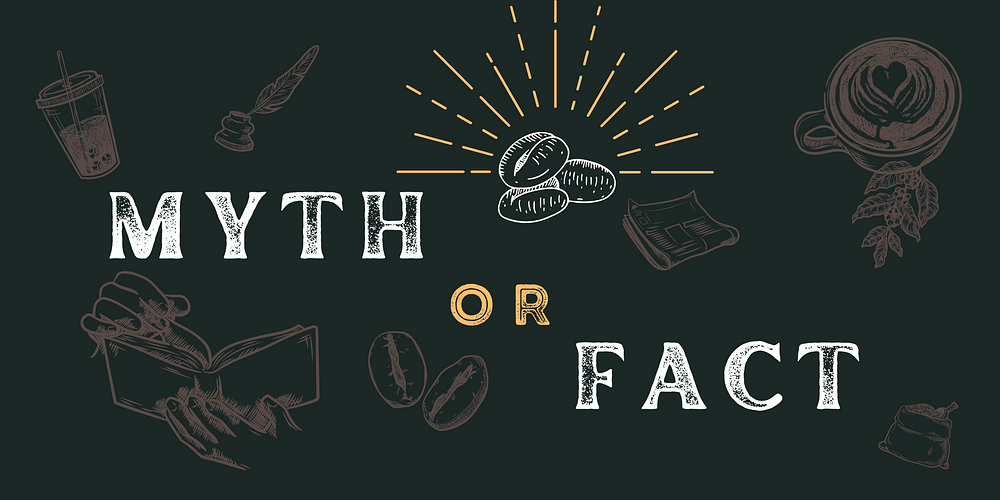- The Common Ground
- Posts
- Coffee and Health: Myths vs. Facts
Coffee and Health: Myths vs. Facts
Let’s break down some common beliefs and see what science actually says.
Coffee’s Effects on Health: Myths and Facts
When it comes to coffee, there’s no shortage of opinions on its impact on health. From claims of caffeine addiction, to concerns about its effects on sleep, it can be hard to separate fact from fiction. Let’s break down some common beliefs and see what science actually says.

Myth 1: Coffee Causes Caffeine Addiction
Fact: While coffee contains caffeine, which is a stimulant, labeling it as addictive like a drug is misleading. Caffeine dependence can occur, but it’s generally mild and doesn’t lead to the harmful behaviors associated with substance addiction. Most people can manage their intake without any significant issues. If you’re consuming moderate amounts of coffee (3–4 cups a day), you’re likely in a safe zone where any dependence is minimal.
Myth 2: Coffee Disrupts Sleep
Fact: It’s true that caffeine can affect sleep, but this largely depends on when and how much coffee you consume. Caffeine has a half-life of about 5–6 hours, meaning it stays in your system for a while. If you’re drinking coffee late in the day, it could interfere with falling asleep. However, for most people, enjoying a cup in the morning or early afternoon won’t impact their sleep quality at night.

Myth 3: Coffee Is Bad for Your Heart
Fact: For years, coffee was blamed for causing heart problems, but recent research tells a different story. Moderate coffee consumption (again, 3–4 cups a day) has been associated with a lower risk of heart disease and stroke. The antioxidants in coffee may help reduce inflammation and improve heart health. Of course, if you have a pre-existing heart condition, it’s always best to consult your doctor.
Myth 4: Coffee Dehydrates You
Fact: While caffeine has a mild diuretic effect (it makes you urinate more), the water in your coffee more than compensates for this. Drinking coffee contributes to your daily fluid intake and does not lead to dehydration. So, you can count that cup of coffee as part of your hydration plan.

Myth 5: Decaf Coffee Is Caffeine-Free
Fact: Decaf coffee isn’t completely caffeine-free. It typically contains about 2–5 mg of caffeine per cup, compared to the 95 mg found in regular coffee. While this amount is small, it can still be significant for those who are particularly sensitive to caffeine or need to avoid it completely.
The Benefits of Moderate Consumption
In addition to debunking myths, it’s worth noting that moderate coffee consumption can offer several health benefits. Studies have linked regular coffee drinking to a lower risk of several conditions, including Parkinson’s disease, type 2 diabetes, and certain types of cancer. The antioxidants and other bioactive compounds in coffee contribute to these protective effects.
Bottom Line
Coffee has been the subject of much debate, but when consumed in moderation, it’s more likely to offer health benefits than harm. Understanding the facts can help you enjoy your coffee with confidence, knowing it’s part of a balanced approach to wellness.

We are excited that you wanted to join us for our journey. Here’s to many more morning brews, conversations together, and a community all about The Common Ground.
We Want to Hear from You!
Your thoughts and feedback are the heart of The Common Ground. Have a favorite coffee story, a café you love, or a topic you’d like us to cover? Let us know! We’re all ears (and beans). Drop us a line, and let’s keep the conversation brewing!
Sign up for our newsletter: https://thecommonground.beehiiv.com/subscribe
Follow our blog: https://medium.com/@thecommonground

Reply